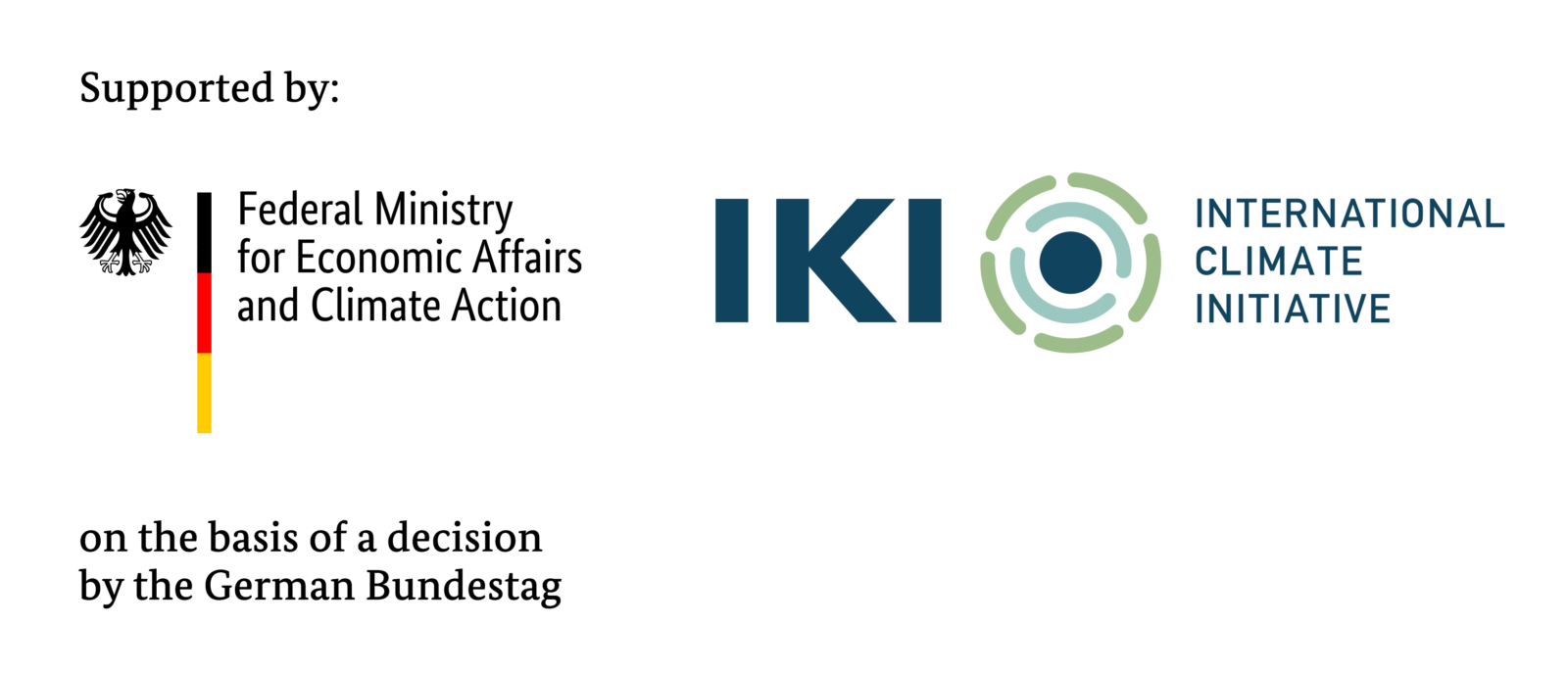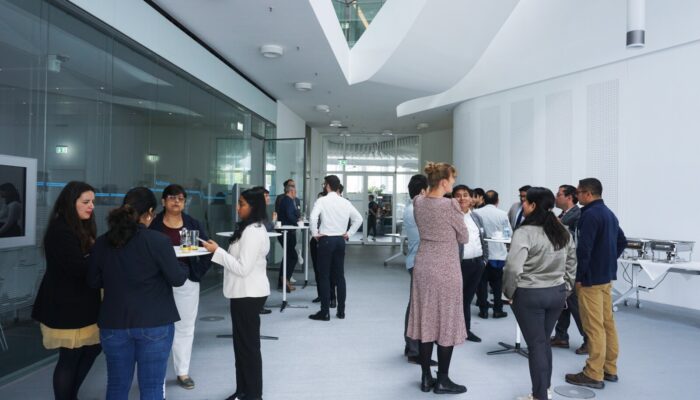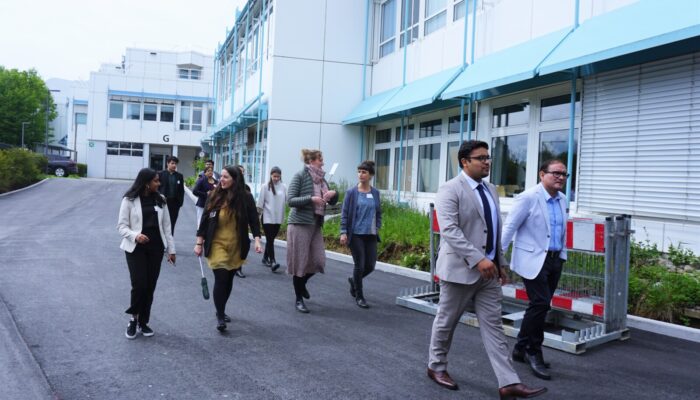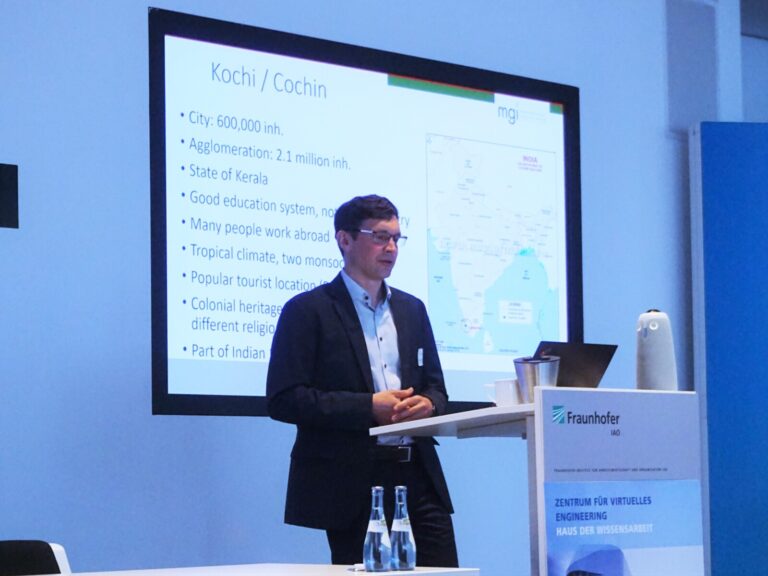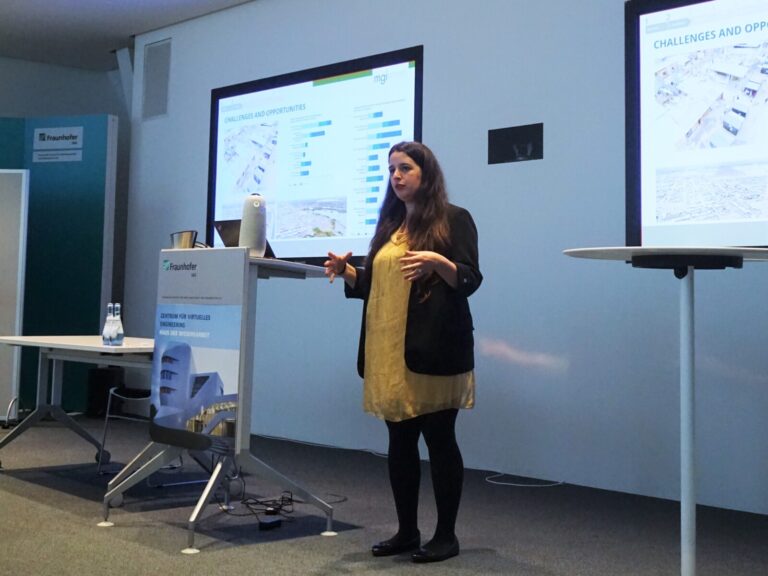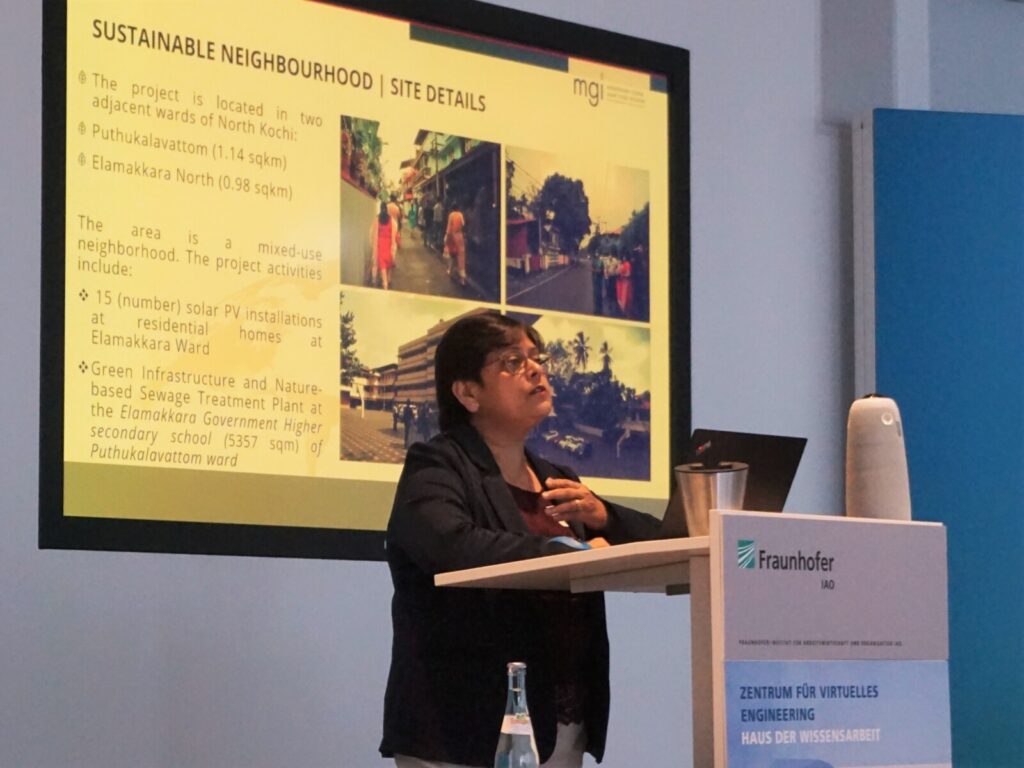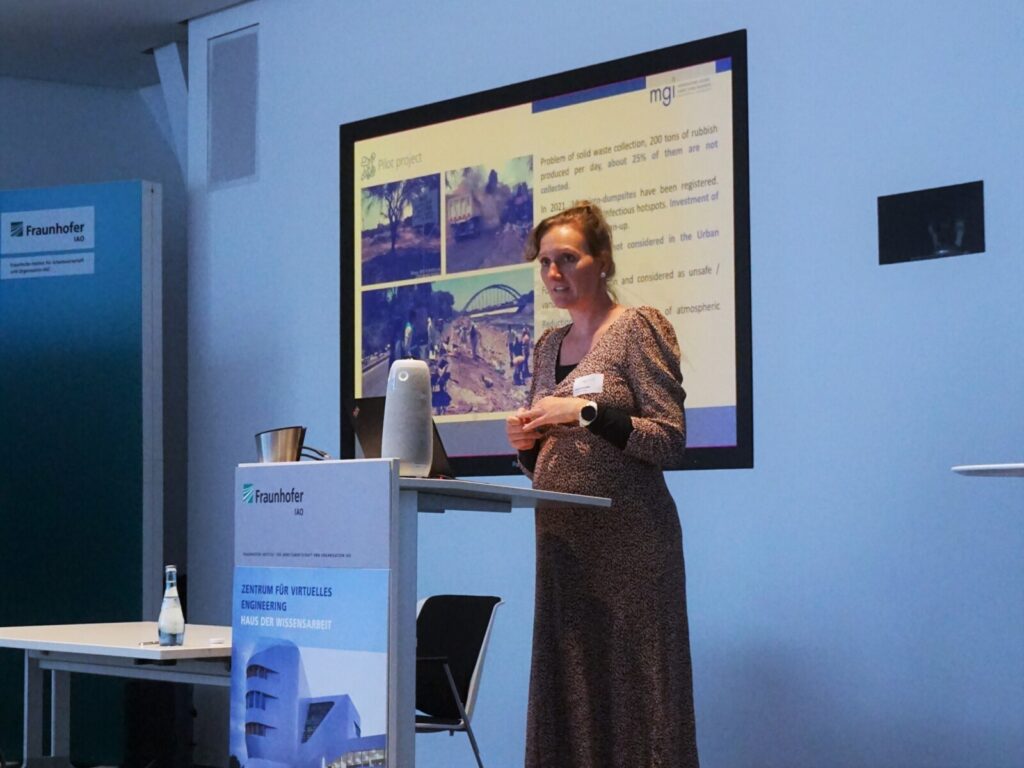MGI Final Conference: Lessons learned from four years of transforming cities
The final conference of the Morgenstadt Global Smart Cities Initiative on May 9th was an occasion for all experts, local partners, and team members to come together at the Fraunhofer Institute for Industrial Engineering (IAO) in Stuttgart (Germany) and look back at the journey of over four years bringing forward transformational change and climate action in the MGI pilot cities in Mexico, Peru, and India.
Not only was the conference a space for the City Lab members from each city to finally meet each other again in person and exchange expertise and lessons-learned from their pilots. The contributions of the experts and local partners made clear that the greatest potential of cities to lever the consequences of the climate crisis is working in interdisciplinary innovation labs on the ground level together with local stakeholders, experts, and institutions, providing locally tailored solutions to climate risks and challenges with a long-lasting effect in the city.
Find the contributions of the speakers in our library:
Cities at the center of the climate crisis
Judith Commenges from the International Climate Initiative (IKI), the sponsor of MGI, was very clear in her opening statement of the conference: “Climate change is one of the most pressing subjects of our time” and cities play a vital role in the achievement of the Paris Agreement.
The IKI is part of the international climate finance commitment of the German government, implemented by the Federal Ministry for Economic Affairs and Climate Action (BMWK). It finances projects that implement measures to climate change adaption and mitigation, emission reduction and biodiversity conservation in “developing, emerging and transitional countries”.
In this context, Ms. Commenges, highlighted her and the IKI’s appreciation for the replicability and positive adoption of the MGI pilot from part of the local political institutions in the pilot cities. According to her, MGI as a project with an integral approach to making cities more equitable and sustainable has shown what urban development with integrated solutions should look like.
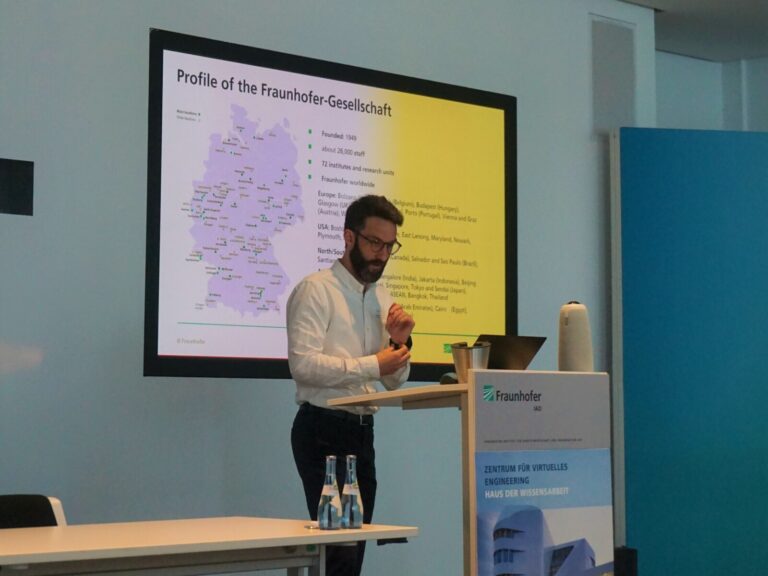
Being part of the Morgenstadt Network, MGI would not have come into existence without the Morgenstadt Methodology, developed in European pilot cities by the network at the Fraunhofer Gesellschaft. This methodology has been the baseline for the analysis of the potential to innovation and sustainability of the MGI pilot cities.
As Petr Suska, team leader of the Urban Economy Engineering section at Fraunhofer IAO explained, the Morgenstadt Framework takes a systemic approach to urban environments, including local stakeholders and building from synergies between various partners. The City Labs are a tool to assess how ready a city is to adapt certain elements to become smarter and more sustainable, and what must be done to prepare the city for such elements.
A Global Approach for Local Solutions – The potential of MGI
For each MGI pilot city, an interdisciplinary City Lab team conducted the analysis of climate risks and challenges in the cities, following the Morgenstadt Methodology. According to Catalina Díaz, project coordinator of the initiative, the biggest challenge was to adapt this approach to partner cities outside the European context and to integrate the element of climate change adaption and mitigation, all while working under the unexpected conditions of the COVID-19 pandemic.
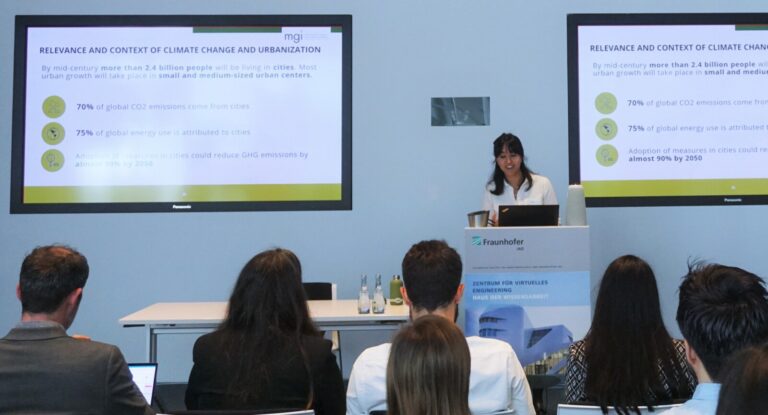
What the MGI project has demonstrated is that a global approach like the Morgenstadt Methodology does not only help to understand a city in a systemic way, but also bears the potential to develop solutions to the climate crisis from the local level of cities.
As Ms. Díaz stated, when it comes to climate change adaption “the potential that cities have to act from the local level are more relevant than ever”.
In this sense, the MGI pilots in Kochi, Piura and Saltillo are seed projects for the cities to test different measures and to demonstrate the importance of working on climate actions. The Morgenstadt Methodology is a global approach that has allowed to develop solutions to the individual and various climatic challenges of every pilot city, adapted to each local urban context.
In relation to this, Marius Mohr from Fraunhofer IGB and City Lab Leader in Kochi commented on the usefulness of the cross-impact factor analysis based on the stakeholder interviews, which “gave us a good picture of the situation of the city.”
In the case of Piura, City Lab Leader Trinidad Fernández noted: “The Action field analysis helped us to see where the city could be improving, and we took the opportunity to show the city what needs to be done to do this.”
Opening Pathways to Sustainable Urban Transformation
Based on the analysis of the urban system of each pilot city, the City Labs concepted a roadmap with possible solutions to identified risks and challenges. The outcome of the application of the Morgenstadt Methodology are urban strategies for climate change adaption and sustainable development that are replicable in other parts of the cities. In this aspect, Ms. Díaz highlighted the important role of local stakeholders and partners who were “key in terms of prioritizing the projects ideas and also anchoring them to the city.”
The co-created solutions from the City Labs also found their way into the local political institutions, being adopted as a Municipal Climate Action Plan in Saltillo, integrated into the official urban planning strategy in Piura, and supported directly by the city major of Kochi.
With this, the impact of the Morgenstadt Global Smart Cities Initiative will not be limited to the implementation of the pilot project. Instead, the initiative has resulted in new pathways to sustainable urban transformation in the pilot cities.
The users of urban space are key for the seed of change to grow
Apart form the synergy with different sectors and political institutions of a city, the acceptance of the users is essential for the long-term effectiveness of sustainable development measures. In every pilot city, the residents around the pilot sites were included as key stakeholders, from the planning process to the implementation of the projects.
Dr. Debjani Gosh from NIUA in India recalled how it was important for the growth of the pilot project in a secondary school in Kochi to make sure to give the school children a sense of ownership and responsibility towards the constructed pilot elements in the school yard. Similarly, Stella Schroeder from University of Piura concluded in the case of the pilot in Piura: “The idea is to include the people in all the steps of the design process, so that it becomes their place and not ours.”
Tomas Vacha, guest speaker and urban planning expert in the city of Prague, picked up this issue in his contribution. According to Mr. Vacha, shared transformative experiences are needed for people to accept changes in the local ecosystem of their city and to include them in their own behavior, ultimately making the changes more impactful and long-lasting.
“When people learn, it is not just knowledge. People learn though experiences, observing, and sharing. The same works for cities. So, to have people involved in urban projects is important, and a learning approach should be integrated into urban transformation projects.”
Local knowledge for responding effectively to climate risks
Not only are the citizens important for the longevity of urban transformation measures, but also for responding to climate risks and challenges. As Sophie Mok from Fraunhofer IAO and responsible for the publication of the Global Climate Risk and Challenges Report concluded, the citizens are perceived to be the most vulnerable group to climate change impacts in comparison to economy, environment, and infrastructure. As such, urbanists and scientists must push to include the locally affected communities in transformation projects and climate adaption processes.
“One takeaway from all pilot cities is that we need to find out how to reach out and integrate vulnerable groups and to use indigenous knowledge that is already there on the ground level, not only scientific expertise from abroad”, Ms. Mok stated. “The important thing is to put the gained knowledge into practice and implement these locally tailored solutions for the global challenges to come.”
Financing urban climate change adaption
When talking about urban transformation projects, the issue of feasibility and financing cannot be left aside. One condition to the measures proposed in the MGI roadmap was that it would be possible for the pilot cities to implement, up-scale, and maintain them on their own once the funding through MGI has ended.
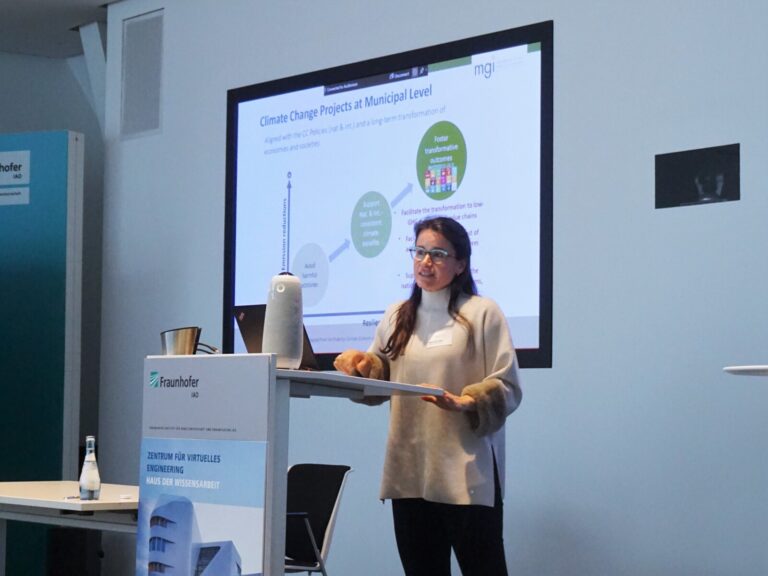
As illustrated by the MGI sustainability financing expert María Baez from the Frankfurt School of Finance, the right financing source and instruments must be selected on a case-to-case basis for each project. Which mechanism or scheme is adequate, depends on the size and life cycle of the planned measures.
In the case of projects like MGI, “international financial institutions and sources are a very adequate funding option because private investors need ‘proof’ that it works and with the years of track record there will be much more appetite from private investor sites to finance such projects.”, Ms. Baez concludes.
MGI is looking towards successful finalization
The celebration of the MGI Final Conference has been a massive milestone in the process of the project. Until the official end of the initiative in June this year, the partners in the pilot cities are finishing the construction and inauguration of the pilot sites and prepare plans on how to upscale or replicate them in other parts of the city.
What the experiences from the Morgenstadt Global Smart Cities have shown so far is that the urgency of the climate crisis can be successfully addressed through a synergy of the knowledge from local stakeholders and experts with a global perspective on cities as center of innovation and potentials, able to face the challenges to come.
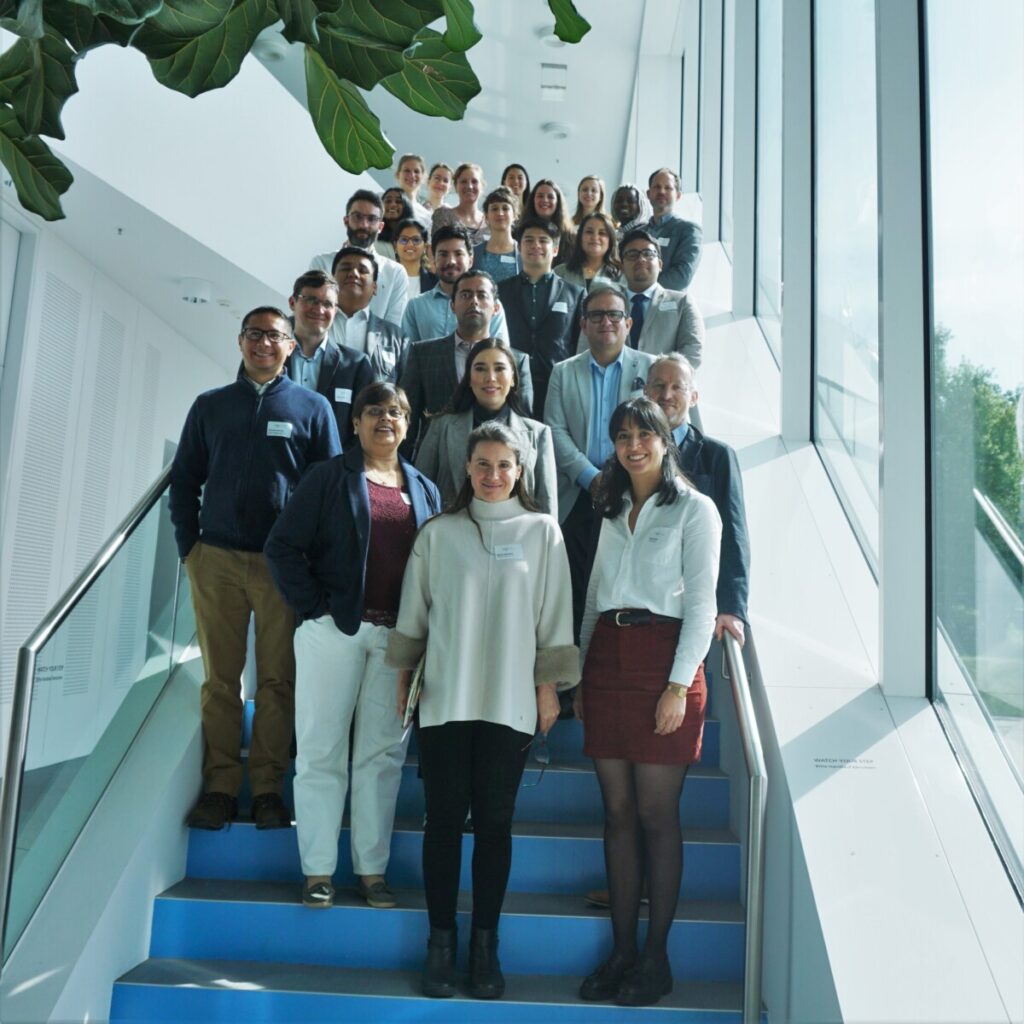
We thank our local partners from the pilot cities, the City Lab experts, and our guest speakers Judith Commenges, Steffen Braun, Petr Suska, and Tomas Vacha for their insightful contributions and taking the time to attend to the MGI Final Conference in person in Stuttgart.
Share this news with your network!
More from MGI
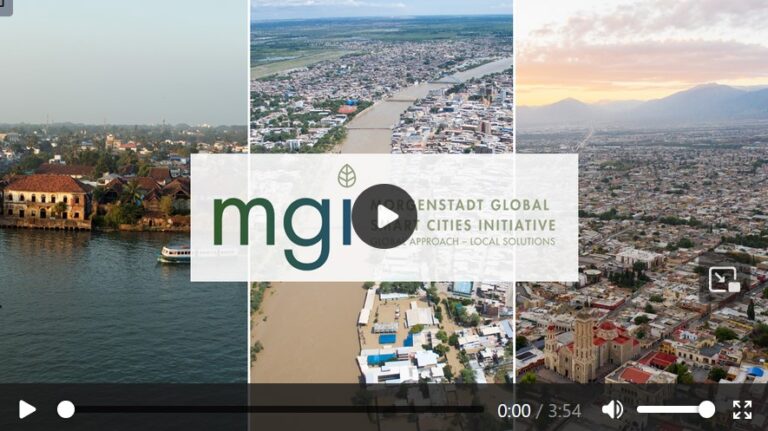
MGI Says Goodbye
The Morgenstadt Global Smart Cities Initiative (MGI) has been officially concluded. For the occasion, the MGI consortium looks back at four years of transforming cities for the future.
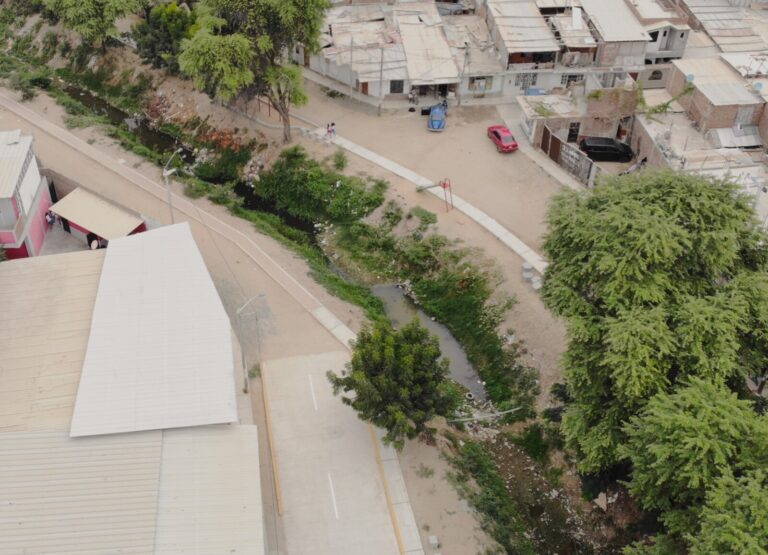
Piura Pilot Project: Transforming a neglected public space
After implementing the MGI pilot project, the residents can now use a formely neglected public space according to their requirements. Read more.
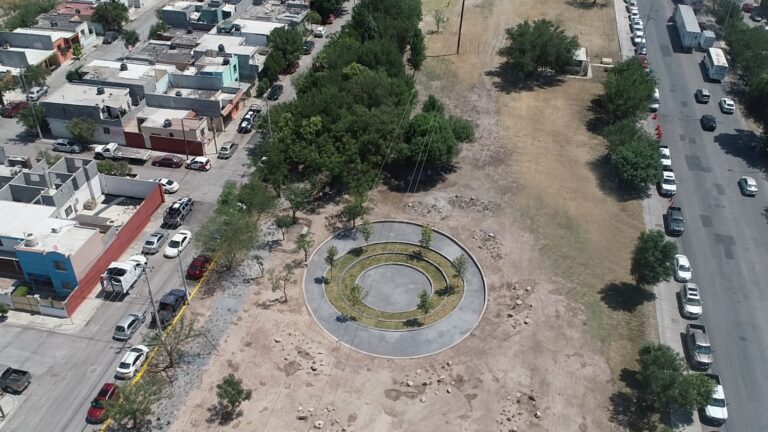
Saltillo Pilot Project offers Solutions to Floodings and Heat
The pilot project of MGI in Saltillo has been successfully implemented. The newly inaugurated park offers solutions to floodings, heat, and biodiversity loss.

